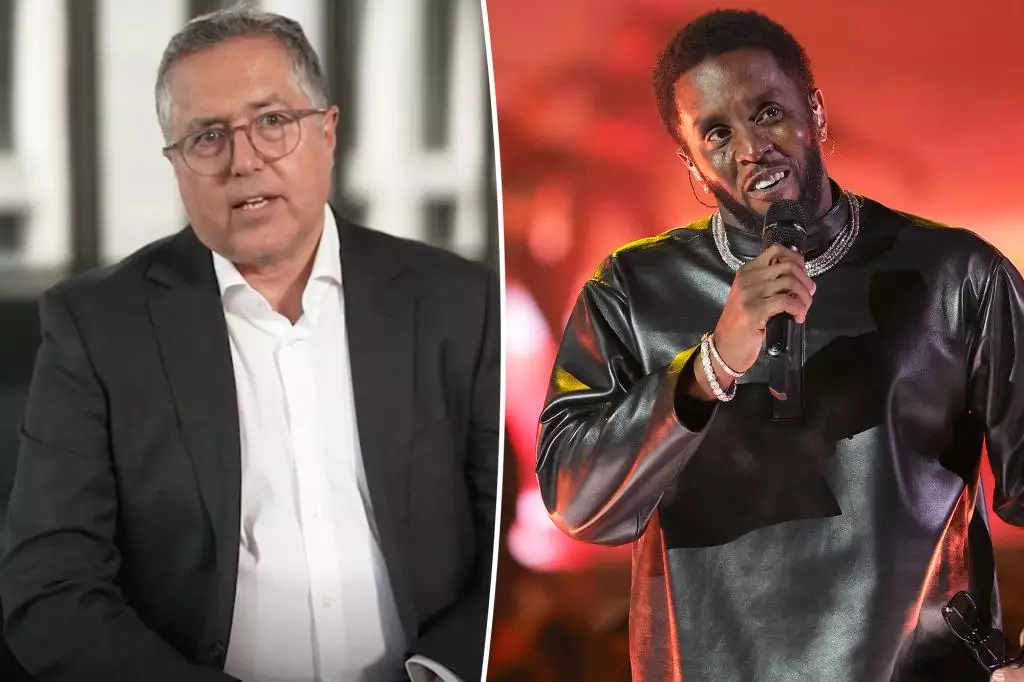The realm of celebrity is rife with glittering facades, but under those bright lights often lie murky undertones. Sean “Diddy” Combs, a titan in the music industry, finds himself entangled in serious legal battles that expose the sobering realities behind fame. The recent revelations regarding his indictment have not only shocked fans but also sparked crucial discussions surrounding power dynamics, sexual consent, and the darker corners of celebrity culture.
One of the most bizarre elements of the FBI raids on Combs’ properties was the reported discovery of approximately 1,000 bottles of lubricant and baby oil. In defending his client, attorney Marc Agnifilo expressed confusion over such a staggering inventory. His comments imply skepticism towards the legitimacy of the quantity and the intention behind it. “One bottle of baby oil goes a long way,” he remarked, emphasizing that buying in bulk, particularly from establishments like Costco, might not justify the astronomical number seized.
However, as Agnifilo tried to downplay this intriguing piece of evidence, one must question: why would someone require such an excessive amount of lubricant, especially when contextualized within the claims of organizing “freak-offs”—elaborate parties that purportedly included drugs, alcohol, and sexual activities? The sheer volume, interpreted through the lens of federal prosecutors, hints at a more sinister purpose, painting a portrait of indulgent excess bordering on exploitative behavior.
The allegations against Diddy extend far beyond mere embarrassment; they strike at the heart of consent and manipulation. U.S. Attorney Damian Williams has revealed horrific testimonies from individuals who allege they were drugged and filmed engaging in sexual acts without their consent. Such practices transcend personal misconduct and tap into alarming societal patterns regarding celebrity culture, where power imbalances can lead to exploitation.
The term “freak-off” used in court documents may evoke images of private gatherings for entertainment; however, juxtaposed with allegations of drug distribution and coercive tactics, it becomes emblematic of a concerning reality. The notion of using recorded materials as collateral further illustrates the manipulative mechanisms that may flourish in environments where power dynamics tilt heavily in one individual’s favor.
The unfolding saga encapsulates a larger issue: the accountability of those in power, particularly within the culture of celebrity. The prevalence of accusations surrounding sexual misconduct across various industries has prompted essential conversations regarding consent, respect, and the social responsibility of public figures. The Diddy case is but one high-profile example in a growing series of instances where fame and privilege shield accused individuals from immediate accountability.
Visible contrasts between the public personas of entertainers and their alleged private behaviors challenge the societal benchmarks of heroism and moral integrity. While celebrities often serve as cultural icons, their actions reveal the importance of scrutinizing public narratives—particularly those that have historically been overlooked or dismissed.
With Combs facing charges ranging from racketeering to sex trafficking, the road ahead appears treacherous. His not-guilty plea signals a contentious legal battle bound to generate headlines and fervor, drawing attention not just to his story but to broader societal issues. The legal proceedings will not only determine Diddy’s fate but also provoke necessary discussions about the treatment of victims, the prevalence of substance abuse in celebrity circles, and the justice system’s approach to high-profile cases.
Sean “Diddy” Combs’ current predicament serves as a reminder that behind the glitz and glamour of fame, darker stories often lurk. The dichotomy of public admiration versus private accountability raises essential questions about the complexities of celebrity culture, challenging society to confront uncomfortable truths and advocate for justice. As more details emerge, the hope remains that this moment could catalyze change within the industry, sparking conversations that lead to tangible reforms in how we view celebrity, power, and consent.

